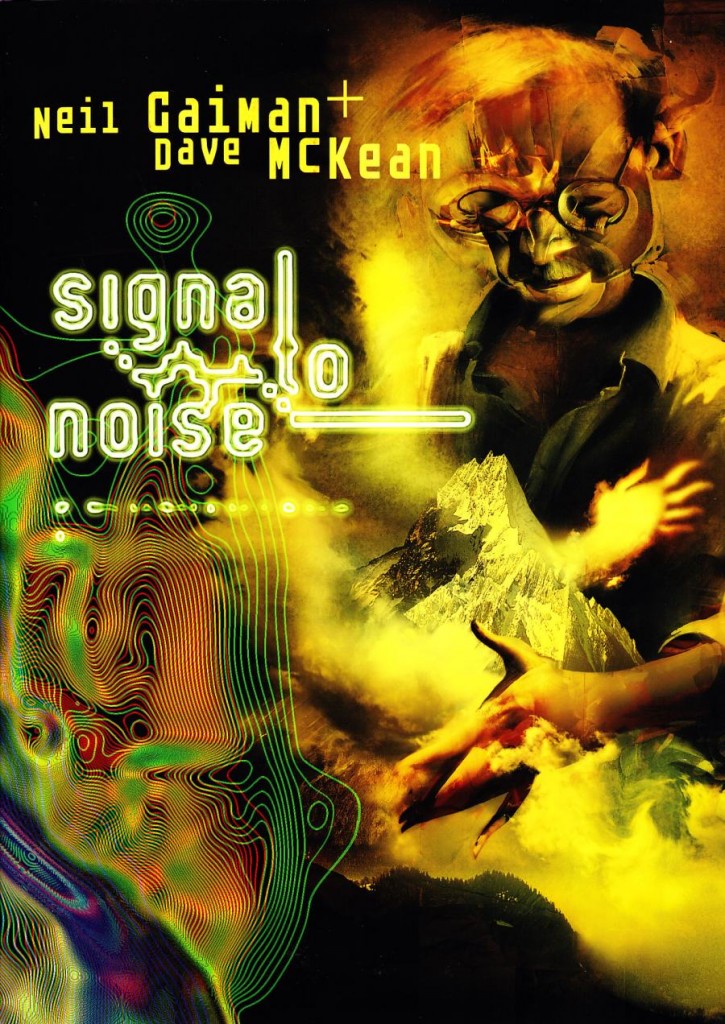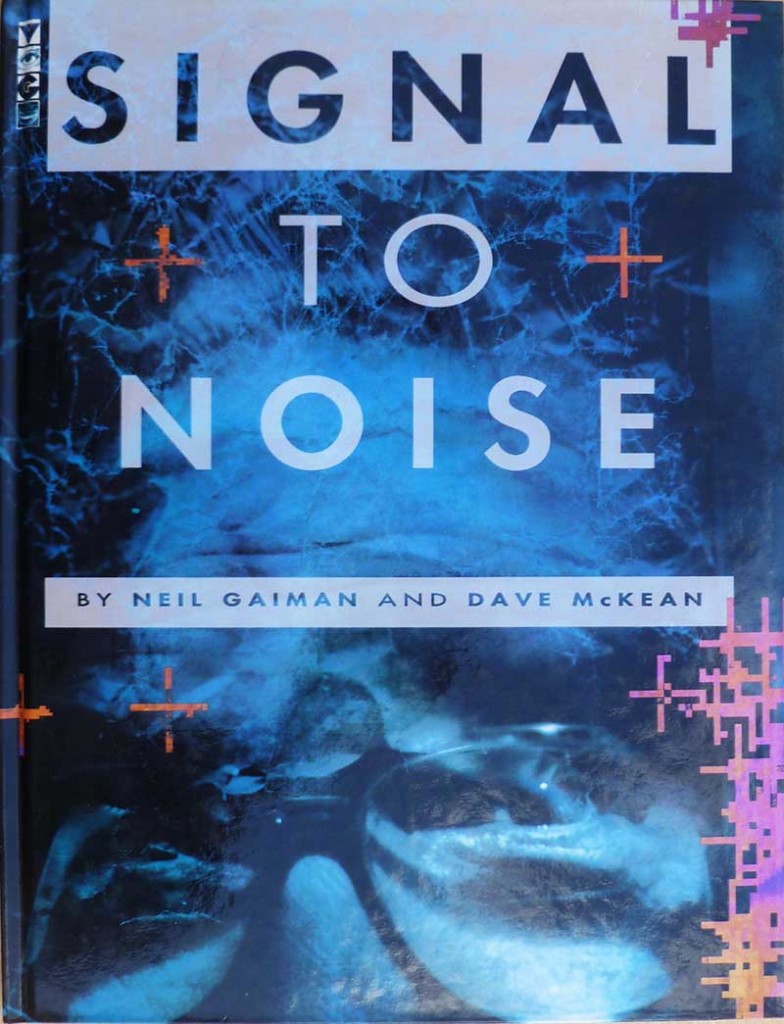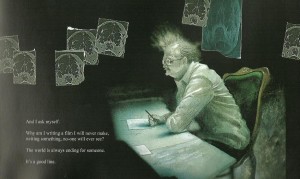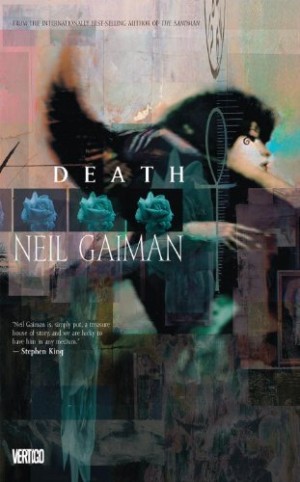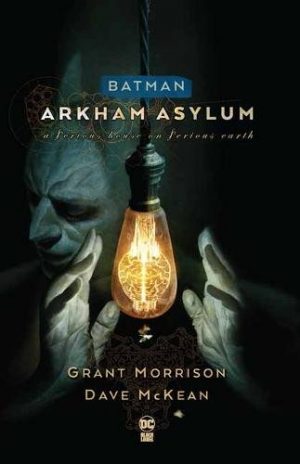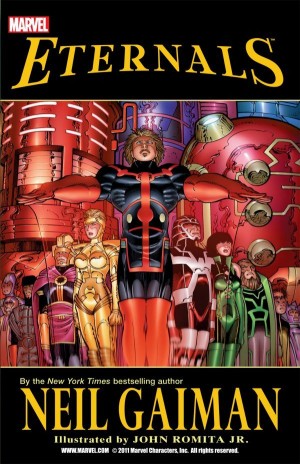Review by Jack Kibble-White
Signal to Noise may well be one of the most visually accomplished graphic novels of all time. Originally commissioned for, and serialised in, the style magazine The Face it certainly works hard to come across as the kind of mature content that readers of that journal fully expected to receive. It tells the story of a film-maker diagnosed with a terminal illness and the final film that he will never get to make – that of villagers living in the year 999AD attempting to flee what they believe to be an impending apocalypse.
This dual narrative unfolds with the reader slipping between the film-maker’s real life situation and his imagined movie. In this respect, Signal to Noise resembles McKean and Gaiman’s earlier Violent Cases, with reality and fantasy interlocking and shifting around one another.
McKean’s artwork is astonishing. His default setting is a 16-panel grid. Back then it was beloved of comic creators such as Frank Miller, but McKean makes it his own, using it as structure by which to drip feed subtle gestural nuances like a wave of despondency passing over the film-maker’s face, or to allow for cinematic transitions, such as the moment in which the film-maker appears briefly within his own narrative only to have this image transform into the photographic backdrop at a press conference.
Gaiman’s script is somehow less sure-footed. While Violent Cases worked extremely well as a short story about memory, Signal to Noise grasps at something more profound, but struggles to make us care about its central character, and therefore his mortality. It’s as if, Gaiman overawed by the brief – to create a comic strip for serialisation in a style bible – felt he had to break out all of his best narrative tricks in order to crowd please. There is a sheen to this story, a beautiful sheen thanks to McKean, but the substance – the signal – is strangely muted.
